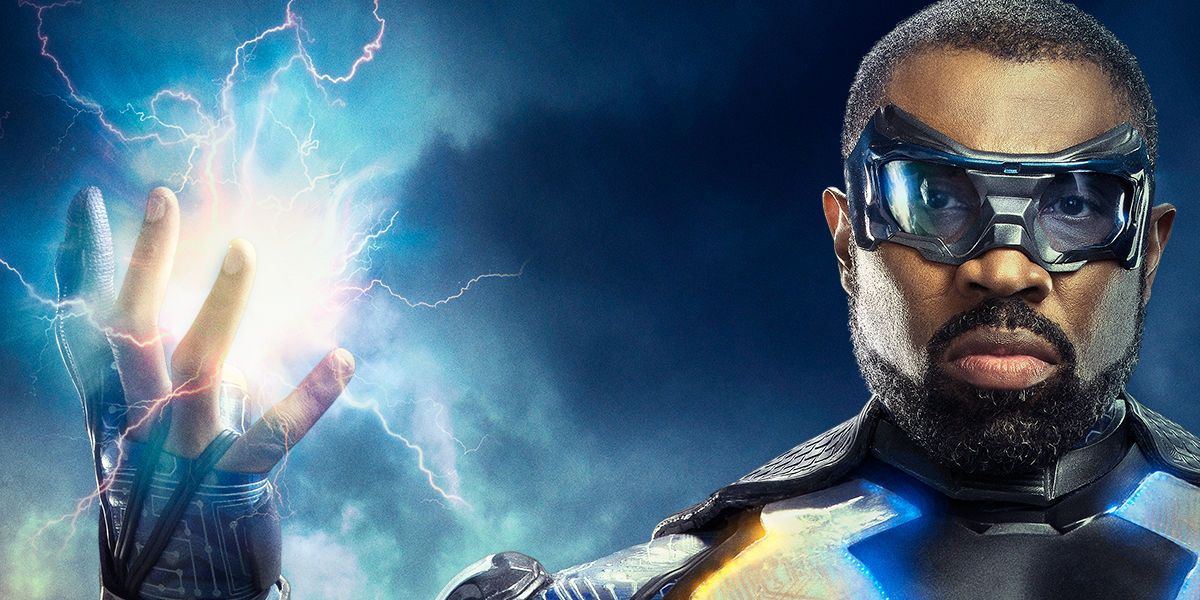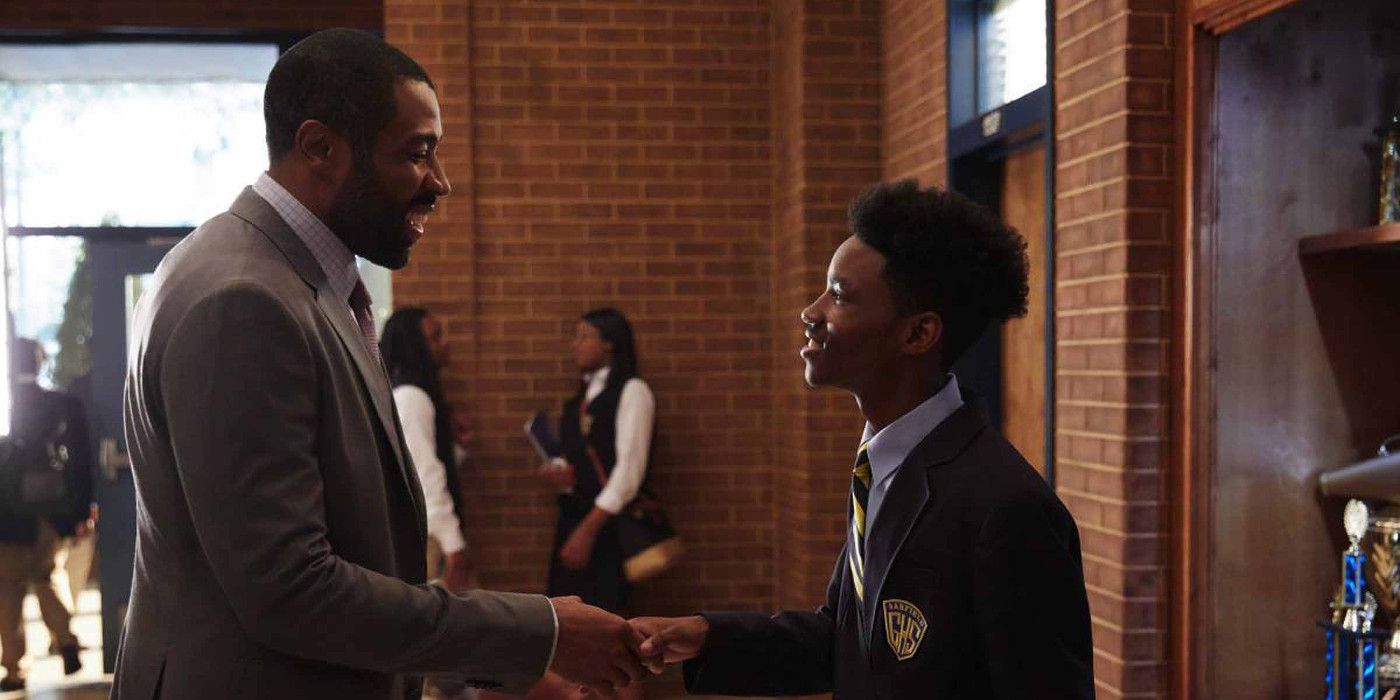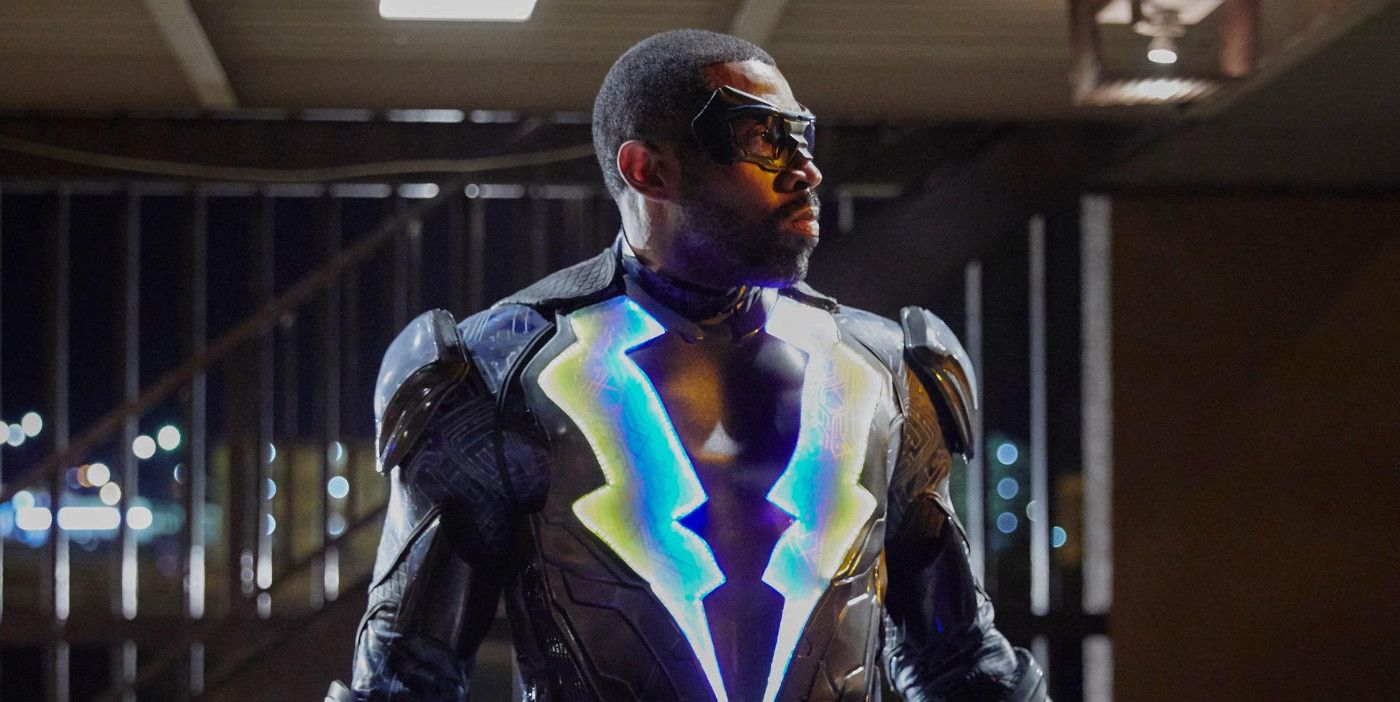We're now several episodes into the first season of the latest addition to The CW's roster, Black Lightning. Another DC superhero adaptation, the show follows the titular hero as he's forced out of retirement when crime around him reaches boiling point. As with any caped, or spandexed, crusader series on the network, there's major speculation over if and when he'll join the ranks of the Arrowverse. Although the showrunners have dispelled the idea, getting to a second season may well change that answer. But as much fun as joining Oliver Queen and his super friends would well be, this is one hero that's better off working alone.
The show didn't begin life as a CW project. The pilot was commissioned by Fox before they passed on it, leaving The CW to swoop in. A contrast in production approach is already evident in the impressively wide array of topics in its first three episodes, from queer romance to the growing pains of adolescence to social activism and police corruption, all underpinned by a rising presence of gang violence. And that's before mentioning Jefferson Pierce himself, and his role as a school principal, father, ex-husband and (reluctant) vigilante savior, whose family and friends are all intertwined in different corners of the community. Narratively and thematically, while Black Lightning is our protagonist, the story goes beyond him and his role, to the point that without his heroism it'd still be a functional family drama about a high-school principal trying to keep his neighbourhood intact.
Related: Black Lightning is The CW’s Biggest Premiere in 2 Years
The use of deeper, more resonant themes in superhero-based television has been evolving for years now, Marvel's Netflix shows and FX's Legion have been praised for pushing the envelope of what the genre is capable of. Black Lightning isn't on the level of those more “prestige” productions, but it gets remarkably close for a network creation. Beside subject matter, greater emphasis on dialogue and more dynamic lighting and staging make it look a step above your average regularly scheduled programming. Not to be too disparaging, but your Supernaturals and your Agents of S.H.I.E.L.D.s don't have a reputation for their complexity or their production values. In fact, their charm is more in how they embrace the opposite in a mix of overblown melodrama and cartoon fantasy. Those shows and many like them have done great things, but Black Lightning's got higher aspirations.
Featuring an almost entirely black cast in a show developed by two black screenwriters, Mara Brock and Salim Akil, that deals with an intersection of plotlines largely about being black in modern America is itself a step forward. Mainstream media is only gradually moving away from straight, white men as the default. Black Lightning is, like Marvel's Black Panther, just going for it and frankly, as much is long overdue and hopefully the start of a bigger trend.
But more than just the use of black voices, it's the unabashed willingness to front-load the series with contemporary political issues. The third episode contains a name-check of Black Lives Matter and a march against organized crime that ends in a drive-by shooting. Our hero's central crisis is whether vigilante justice can actually help his community long-term: he can stop main gang the 100 now, but that's not going to make the local police more efficient or stop other enterprising criminals from trying to take over. He believes education and local involvement is what will keep Freeland healthy, but those methods are slow and, as we join proceedings, failing.
Black Lightning is about the grey area in between the good and evil, and what the choice to become a hero means. Not existentially, but literally, how it hurts your family and what effect it has on actual law enforcement. The show is about what's necessary, what's right and interrogating the standards by which we ask those questions, to ourselves and others. Compare this to CW peer Supergirl, whose main plots are currently an extended play on the religiosity of hero worship, a love triangle and a new arch-nemesis, Reign. These coming off a momentous, transparently anti-Trump season 2 finale. The series is still entertaining, for the most part, but that's coming down to a good cast and charming subplots, such as J'onn's new-to-Earth father learning about hot chocolate and Star Wars. The other solo members of the Arrowverse are similar; Arrow is continuing to spin its wheels as a diet-Batman TV alternative and Barry is literally in prison while The Flash busies itself developing Team Flash. It seems that between platitudes and big crossovers, the showrunners are unsure what to do and reticent to double-down on anything more specific than “the current political regime is bad” and “being a superhero is hard.”
Network TV is an often complicated game and creating two-dozen episodes while keeping audiences tuning in for eight months and occasionally pushing boundaries is rolling a lot of dice and hoping everything works out. And there's definite value in some things just being fluffy, switch-your-brain-off entertainment. But superheroes are at their most compelling when they take an uneasy stand. And in Black Lightning's case, even some of what it depicts is under that category; in the first episode Jefferson is pulled over by police and questioned due to obvious racial profiling. The show isn't leaving itself up to interpretation, nor is it apologizing for doing so.
And the series is already building its own universe, too, the 'Lightningverse'. Jefferson's daughters have begun discovering their powers (to eventually become Thunder and Lightning) and The Outsiders, a comic team of Black Lightning was a prolific member, have gotten an onscreen nod. Just as it has its own precise set of topical issues and angles, so too does it have its own set of protectors. The Arrowverse continues to do great work, especially when that whole family comes together, but for Freeland, Black Lightning's got it covered for now.



